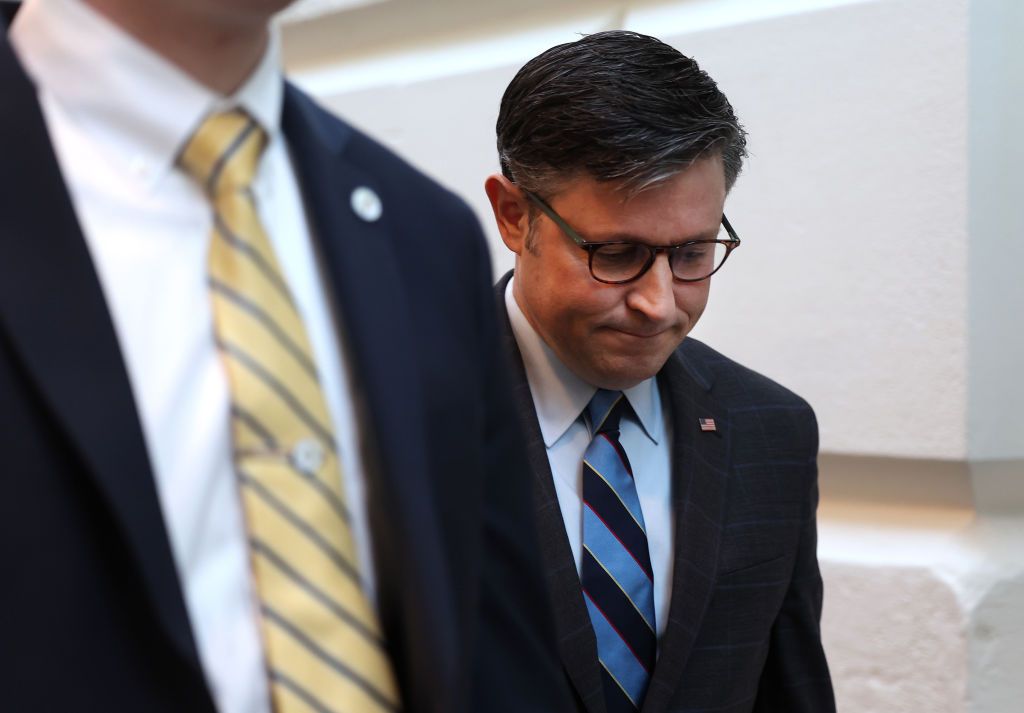Top Republican officials have indicated that a vote on Ukraine aid in Congress is still weeks away, contradicting House Speaker Mike Johnson’s previous statement that it would be held “right after Easter.” The $95 billion aid package to Ukraine, Israel, and Taiwan has been delayed since fall 2023 due to infighting in Congress, with Johnson stalling on bringing it to a vote in the Republican-led House. Despite expectations from Republican Congressman Michael McCaul that the aid would be voted on after Easter, there are signs that support for Johnson to keep his position is dwindling within his own party. President Volodymyr Zelensky’s one-on-one phone call with Johnson on March 28 suggested that the aid was moving forward, but the specifics of the bill have not been shared within the party, contributing to the delay.
Johnson had previously mentioned that the aid bill would contain “some important innovations,” but did not provide details on what measures he meant. The “innovations” and other concessions in the bill remain a sticking point leading to the delay, and Johnson’s spokesperson later clarified that the comments about voting after Easter were not meant to convey a specific deadline. The Biden administration rejected the idea of connecting Ukraine aid with lifting the pause on new liquefied natural gas export licenses, ruling out a possible concession that Johnson had sought. This delay in military assistance comes as Ukraine warns of the impact on the military’s position on the battlefield, with President Zelensky indicating that the army may have to retreat further if aid continues to be delayed.
During Russia’s unprovoked invasion and war against Ukraine, Americans showed overwhelming support for sending arms to Ukraine. However, some far-right Republicans are opposed to further aid to Ukraine despite the ongoing conflict. As the world watched in horror at Russia’s aggression, 79% of U.S. voters supported aiding Ukraine. The reluctance of certain Republicans to continue providing aid to Ukraine amid the ongoing conflict raises questions about their motives and priorities in the face of a humanitarian crisis. The continued delays in Congress to approve aid for Ukraine also highlight the political challenges and divisions within the Republican Party on this issue.
The delay in providing military assistance to Ukraine comes at a critical time when the country’s military is in urgent need amid the ongoing conflict with Russia. President Zelensky has warned that further delays in aid could force the Ukrainian army to retreat, weakening their position on the battlefield. The dire situation in Ukraine underscores the importance of prompt and decisive action from the U.S. and its allies to support the country in defending its sovereignty and territorial integrity. The delays in Congress regarding the approval of aid reflect the need for swift bipartisan action to ensure that Ukraine receives the necessary support to withstand Russian aggression and protect its citizens.
As the Biden administration and Congress navigate the complexities of providing aid to Ukraine, the ongoing delays in approving the aid package raise concerns about the political dynamics at play. The reluctance of some Republican officials to support further aid to Ukraine despite overwhelming public sentiment in favor of assisting the country highlights the challenges in reaching consensus on foreign policy issues. The internal divisions within the Republican Party over providing aid to Ukraine underscore the broader debates within U.S. politics about the country’s role in global conflicts and the prioritization of national interests. Moving forward, it is crucial for policymakers to prioritize the humanitarian needs of Ukraine and work towards bipartisan solutions to address the ongoing crisis in the region. By supporting independent journalism and staying informed about developments in Ukraine, individuals can contribute to efforts to advocate for the country’s security and stability amidst ongoing challenges.


